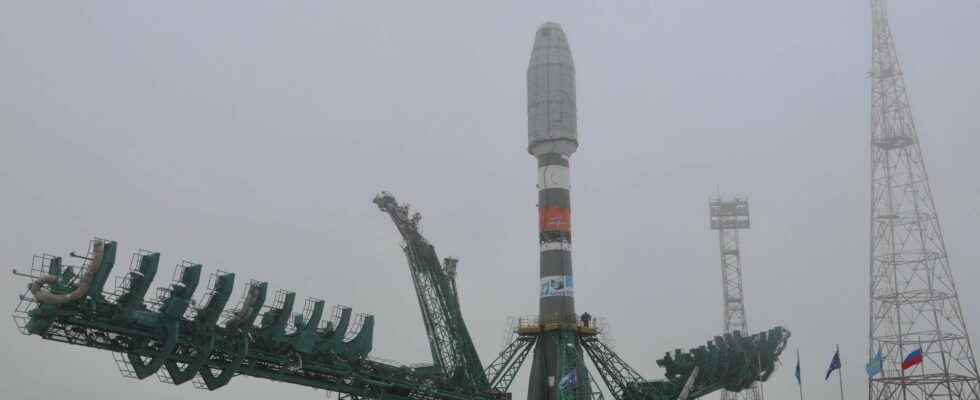Initially scheduled for the night of March 4 to 5, the launch of the Russian Soyuz rocket will not take place. The 36 satellites of the OneWeb constellation which were to go into space will be disembarked from the launcher! In question, the requirements of the Russian space agency Roscosmos that OneWeb was right to refuse, preferring to suspend all its launches from the Baikonur cosmodrome. A situation that could turn against the historic Russian launcher!
You will also be interested
[EN VIDÉO] Ariane 6: a new European launcher to compete with Falcon 9 and Soyuz Ariane 6 is a new launcher developed by ESA. It replaces Ariane 5, capable of double launches but whose market share is threatened by the arrival of new competitors. Discover a video presentation of this audacious project.
International space cooperation had always been neutral ground despite the geopolitical and political conflicts and tensions that have punctuated the world over the past thirty years, but that’s over. Russia blew it up by deciding to stop its partnerships and cooperation in the space field with all the countries that sanction it after its declaration of war on Ukraine.
Destruction of Ukrainian space industries, suspension of launches of the Soyuz from Guyana, end of joint experiences with Germany aboard theISSsuspension of NASA’s participation in the Venera-D (Venus) mission, uncertainties about the fate of ExoMars 2022 and yesterday, OneWeb announces the suspension of the launch of the satellites of its constellation from the cosmodrome of Baikonur, Kazakhstan. The operator, which is setting up one of the largest constellations in order to provide Internet over the entire surface of the globe, made the decision that was necessary due to the requirements of Roscosmos. Its director ordered the departure of the British government from the board of directors of the OneWeb company and that the constellation not be used for military purposes.
#Russia removes the flags of countries including US,UK,Japan participating in a space program from a rocket they are launching, except the flag of India.#Roscosmos chief said – ‘without the flags of some countries, our rocket would look more beautiful’#Russianspic.twitter.com/M2FlMq01bx
— Antriksha Rai (@AntrikshaRai) March 3, 2022
After the suspension of the operation of the Soyuz from Guyana, OneWeb sees its satellites grounded and the objective of commissioning its constellation by the end of the year to fly away. For the moment, only 428 satellites are in orbitwhich is not enough to provide a sufficiently attractive commercial service.
The commissioning date of the Ariane 6 and Vega-C launchers uncertain
Arianespace, which markets the launcher Soyuz internationally and has signed launch contracts with OneWeb, is in expectation. It has no replacement launcher to offer to OneWeb to honor its contracts! The last five Ariadne 5 are already met and although the Cnes stresses that “ the imminent arrival of the new Vega-C launchers and Ariadne 6 on the market makes it possible to envisage a rescheduling of European institutional launches », the date of commissioning ofAriadne 6 is all the same very uncertain and the pace of its expected launches will obviously not be able to compensate for the loss of use of the Soyuz, whether from Guyana or Baikonur. As for the commissioning of Vega Creplacing Vega, you should know that the engines of the fourth stage of the Vega and Vega C launchers (Avum) are manufactured by Ukraine in facilities located in the city of Dnipro, bombed by the Russians!
The Soyuz confined to Russian launches
Undeniably for OneWeb and Arianespace, it is a blow. But, surprisingly, for Soyuz as well. Of course, Moscow can rejoice in having disrupted theautonomy access to space for several months, but the future of its historic launcher on foreign commercial markets is close to zero. The only foreign commercial contracts are those signed with Arianespace which sustain it. Tomorrow, the lost confidence is unlikely to be regained as long as Vladimir Putin and his government remain in power. And Roscosmos will have a hard time selling it to countries that support or refrain from condemning Russia’s invasion of Ukraine – such as China and India, for example, which have a fleet of launchers that covers their needs, or countries which have no or very few satellites to launch.
Interested in what you just read?
